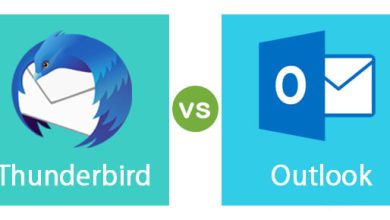3 Common Reasons for Internet Connection Loss and How to Repair

Common reasons for home internet disruptions
- Problems with networks or hacking
- Unfavorable climate
- ISP disruptions and clogged networks
1) Problems with networks or hacking
A hacked network is a less common but potential reason for an internet outage. Suppose hackers can break into the Wi-Fi network. They can cut off access to the internet on all of your devices.
If you believe a hacker has compromised your Wi-Fi network. It would help if you immediately changed the network name and password on your router. The new password should be complicated or random, making it difficult to guess.
A strong password is only part of a comprehensive strategy to keep hackers at bay. Keeping your network and any linked devices’ firmware up to date is equally important. You may further ensure the safety of your gadgets by installing antivirus software. Protecting your computer from viruses and other malware is a standard feature of many internet service providers.
2) Unfavorable climate
The forces of nature can, indeed, disrupt your online activity. High rain, strong thunderstorms, and even heavy cloud cover. This might disrupt your signal and cause your internet connection to go down.
When the power goes out, it can disable any internet connection. But satellite internet is particularly susceptible to weather-related disruptions. If the climate in your area is too bad you could notice that your phone keeps losing mobile network connection and wait for the climate to get normal. Battery-powered modems and routers can keep you online during blackouts. But they won’t do you much good if the outage prevents your modem from receiving an internet signal.
Installing a rain shield, snow shield, or dish warmer on your satellite dish can assist keep your service online during inclement weather. But even if the satellite is thousands of miles distant from your dish. You still could experience signal disruption due to things like rain or clouds. In the event of an internet outage, there is nothing you can do but wait for the connection to be restored.
3) ISP disruptions and clogged networks
However, while many individuals have a negative image of their ISPs, failures affecting more than one home are highly unusual. And outages affecting only one home are sporadic (unless, of course, you forgot to pay the bill). However, the service provider might be experiencing difficulties.
Suppose you can’t go online and have previously tried rebooting the router. Look for information about the outage on your service provider’s social media accounts: official website or third-party sites like downdector.com. Alternatively, you can call customer support but expect a lengthy hold time.
In such a case, the only thing you can do is wait for services to restore after verifying with your ISP that it is indeed experiencing issues. ISPs work tirelessly to rectify service interruptions as soon as possible to avoid negative presses.
While outages are uncommon, network congestion is likely a more common issue, and while it may not necessarily cause a total loss of service. It may undoubtedly restrict speeds to an unacceptable level. Network congestion is a problem for all types of internet access. Including cable, DSL, satellite, and even 5G home internet. T-Mobile says its users may see speeds slower than customers to use other T-Mobile services. It is owing to data priority when network congestion causes speeds to drop.
When there is a lot of traffic on the network, the speeds reach your home dropdown, and there’s not much you can do about it except wait for it to clear. However, as indicated above, you may maximize your current speeds by moving your router to a more advantageous place, tweaking your Wi-Fi settings, or switching to an Ethernet connection.
If your internet connection suddenly drops, what should you do?
In addition to the suggestions above, you may try the following. The first is by using a mobile connection. If your home Wi-Fi connection drops, your phone probably will immediately switch to cellular service. Allowing you to continue using it the same way as if you were away from home. However, remember that doing this will eat through your allotted mobile data.
Additionally, you may turn your phone into a Wi-Fi hotspot with certain service providers and contracts. A temporary solution until the home network is restored. Albeit, it probably won’t provide the same power as your router.
The second option is to locate a public Wi-Fi hotspot, which may be necessary only in the case of extended outages and urgent internet demands. Such as completing an assignment for school on time. Several public sites may provide you with free Wi-Fi. Including your local library, coffee shop, and restaurant.
It’s important to remember that public Wi-Fi isn’t as safe as your private network. So if you need to access sensitive information (such as passwords, banking details, tax returns, etc.), you should either use a virtual private network (VPN) or refrain from doing so.



